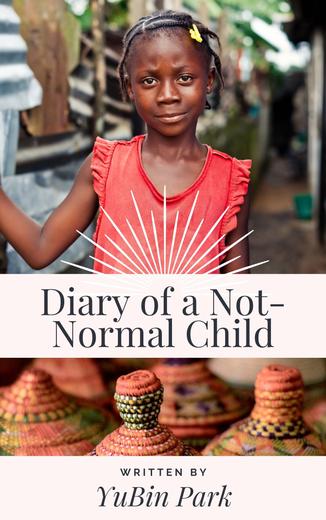
Age:
Middle School
Reading Level: 3.3
Chapter 1
"Wake up, Itanya!" I woke to my mother's voice. "It's time to go to work!"
"Okay," I answer.
My name is Itanya and I work in a factory next to the house I share with my mom and little sister Mhina. She is 8 years old, and instead of coming to the factory with us, it is her responsibility to get water from a well in a neighboring village. I'm 12. There's not really anything especially interesting about our family, or me. Except that I have a bird tattoo on my ankle. Mom says that Dad drew it there when I was 3, a year before he went to heaven.
"Mom, why are we so poor?" I asked, walking side-by-side with her to the factory. It was no secret that we only had just enough to get food.
"I told you not to ask that," she said. Her face looked serious, and we were quiet the rest of the way to work.
When we arrived, we each got into our positions and began working.
The whole day, I couldn't push my curiosity away. Why wouldn't she tell me why we were so poor?
I thought about it all day while I was working. Maybe my dad lost all his money when he died. Maybe we had just been poor when I was born in the first place.
Back home that night, I heard my mom saying to herself, "should we go back to the western part? What should I do?"
That made no sense to me. What was the western part? The western part of Kenya?
Chapter 2
After another day in the factory, we came home to Mhina preparing dinner. When someone thinks of dinner, they probably think of a feast and wonderful food. But, to our family, it isn't. Our dinner is usually one bread with one cup of water. Mom, Mhina and I always eat all our food.
Afterwards was bed, and while I waited to fall asleep, I thought of how I want to live a normal life like other children. Other children can eat until they are full. Actually, I don't know what full means. I know the definition, but I don't know what is feels like. I can't even imagine it. And you know what's weird? I once heard that some children are forced to eat, even when they don't want to. I can't imagine that either.
These days, we are starving more than usual because the factory is not doing well.
Another thing about being a normal child would be that I could go to school. There is no school in our village. It is a sad thing to not be able to learn. I heard that the children who live normally sometimes hate to go to school. Why? Learning is a good thing. If I could get educated, I would love to go to school. How can they hate school? Maybe normal kids don't know about kids like us. Maybe they dont know how sad it is to not be educated.
Chapter 3
On Sundays, I didn't need to go to work. Which was good, but also bad, since I couldn't earn money on those days. Mom went to another factory to earn money. I took care of my sister.
We started our Sundays at 5 o' clock in the morning. The first thing we needed do was get water from a well, which was about a few kilometers away from our house.
One particular Sunday, I called Mhina. "Mhina, come! Let's go get some water!"
"I'm coming!" she called back to me. Mom had already gone to the factory. Mhina and I held hands and went to get water. The land was light brown and there was only one tree. We walked along the path with a water bucket and a canteen for my sister.
The sun was rising. It was beautiful. And I could see wonderful birds soaring above my head. A bird is a symbol for hope. The sunrise means hope too. I paused, looking at the beautiful sunrise and wonderful birds.
One of the birds looked familiar. After I had thought for a second, I realized that it was the same bird as the one on my tattoo. Maybe I already had my own hope.